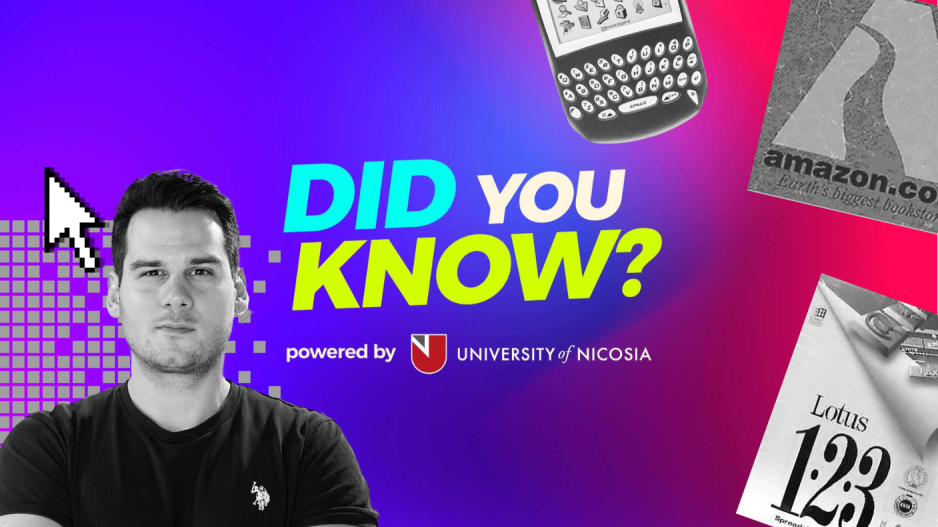Did You Know? The E-commerce, Smartphone, and Productivity Wars
Amazon, BlackBerry, and Microsoft Office
In today's 'Did You Know,' powered by the University of Nicosia, we're tuning into the captivating narratives of Amazon, BlackBerry, and Microsoft Office. We'll unravel the strategies, innovations, and seminal moments that have shaped their trajectories in the tech world.
Picture this: it's 1994, and Jeff Bezos kickstarts Amazon, an online bookstore that would soon grow to become the Goliath of e-commerce. On the other end of the spectrum, we have Walmart, a titan in the physical retail world, making its online debut with Walmart.com in 2000. Despite its best efforts, Walmart finds itself in Amazon's rear-view mirror, unable to catch up to Amazon's innovative third-party marketplace. Walmart's attempts to bridge the gap, such as the acquisition of Jet.com, prove insufficient. This dramatic face-off underscores the power of early adoption, customer-centricity, and continuous innovation.
Let's time travel to the late '90s when BlackBerry entered the scene as an email pager, quickly winning the favor of businesses with its secure messaging services. Simultaneously, Palm launched the Treo smartphone, blending PDA functionality with mobile phone capabilities and capturing the interest of both enterprise and consumers. But the landscape shifted dramatically with the advent of the iPhone in 2007, placing user experience and app ecosystems at the forefront. Both BlackBerry and Palm struggled to adapt to this new terrain, demonstrating the harsh consequences of failing to evolve in the tech ecosystem.
Finally, we explore the head-to-head clash between productivity software titans - Lotus 1-2-3 and Microsoft Office. The 1980s saw the rise of Lotus 1-2-3, a spreadsheet program known for its powerful features. However, Microsoft Office emerged in 1989, offering a comprehensive suite of applications that tipped the scales in its favor. The widespread adoption of Microsoft Windows further bolstered Office's success, creating a strong dependency that proved challenging for Lotus to overcome. Despite IBM's acquisition of Lotus in 1995, Lotus 1-2-3 continued to fade against Microsoft Office's dominance. This tale is a testament to the importance of ongoing innovation, adaptability, and meeting user needs in the competitive tech industry.
Stay tuned for more intriguing stories as we continue to navigate the thrilling chronicles of technological giants in our 'Did You Know' series.






